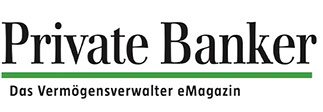

Value Kolumne von Hans Peter Schupp
14. SEPTEMBER 2023
Euroland equities: No need to worry!
Euroland and Germany in particular are currently struggling with considerable economic problems. While China has growth problems it does not fail as an export country, but the figures are clearly declining. While the global economy is sputtering, the central banks are pushing up interest rates, and inflation can only be partially absorbed by companies through further price increases. Added to this are rising wage and energy costs, and finally industrial production, which is also declining. All this can lead – something we haven’t seen for a long time – to a profit recession, which is what we talk about when profits fall for two quarters in a row.
Banks are in better shape than many feared
There are fears of a recession that could last longer than many economists expect. But is everything really that bad? One indicator of the overall state of the economy is the situation of the banks. And the situation is better than many people think. After all, Europe’s banks have significantly increased their risk provisions in recent years and have done their homework. It has to be said that they have been forced to do so, because the ECB tightened the thumbscrews in the years following the financial crisis. This was at the expense of profitability, but it paid off. Take Italy, for example: at the end of 2008, Italian banks had a Tier 1 ratio, i.e., a core capital ratio of about 7%. To date, it has been increased to around 17%. In France, the situation is similar. Here, the Tier 1 ratio rose from 8.5% to 17.5%. And in Germany, it has also risen from 9% to around 17%. If we draw a comparison with the USA, the ratio there has only increased from 11% to 14.5%. In America, therefore, there is a much higher risk that the banks will run out of steam. The risk buffer is much lower there.
Share buyback programs – a clear sign of strength
And there is one more thing to keep in mind. Many European financial institutions have launched share buyback programs. You don’t do that when you’re up to your neck in debt. This is also the case with our portfolio stock Deutsche Bank. In fact, the Annual General Meeting authorized the Board of Management to buy back up to 10 percent of the capital stock by the end of April 2028 – a clear sign of strength.
On the other hand, it is also clear that Germany is the only major EU country for which the economy is forecast to contract in 2023, with a drop of up to 0.5 percent this year. The German minus, of course, masks the fact that the European Union as a whole is looking meager. For 2024, the EU Commission is forecasting growth of just around one percent in the three largest states. This weak figure is not very encouraging, especially since the EU is also pumping money from the debt-financed „reconstruction fund,“ which, according to the goal, is supposed to promote growth. So far, there has been little impetus from this side.
Companies have initiated a slimming diet
Let’s look at the companies. In recent years – especially during the Corona pandemic – they have become much leaner. The cost structures have been adjusted, even if the increased wage and energy costs have taken some of it away.
It may well be that the European economy is still facing hard times. The Purchasing Managers‘ Index for the private sector in the euro zone fell unexpectedly sharply to 47.0 points. The leading indicator for the economy thus reached its lowest level since November 2020. In contrast to the previous month, both sub-indices for industry and the service sector were markedly below 50 points. This points to a contraction in the economy. Across sectors, both business activity and new orders declined and job creation came to a virtual standstill.
Contrarian Value Euroland fund well positioned with a P/E ratio of around 6
None of this is good news. Nevertheless, we are quite positive about our Contrarian Value Euroland fund. After all, the fund’s entire portfolio has a P/E ratio of around 6, so a lot of bad news is already priced in.
Translation for convenience only!
The author: Hans Peter Schupp is a board member of FIDECUM AG and portfolio manager of the Contrarian Value Euroland fund.

